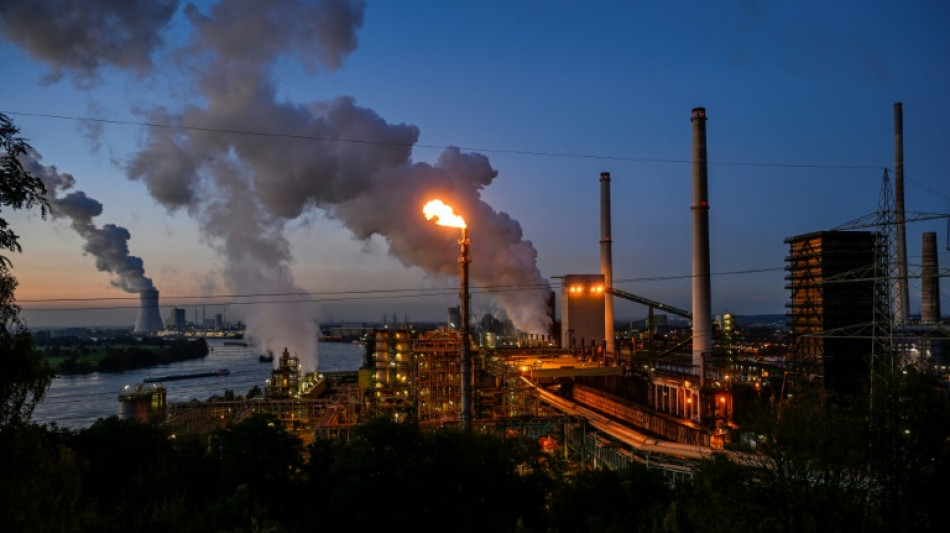

German big business calls for early vote, economic vision
German big business groups demanded almost in unison Thursday that embattled Chancellor Olaf Scholz call elections soon to restore political stability in Europe's stuttering top economy.
Already hit by high energy prices, stiff Chinese competition in key sectors and slow growth at home, companies and industry lobbies were further alarmed by the political turmoil in Berlin.
Hours after the world learnt that Donald Trump, a strong proponent of tariffs, is headed back to the White House, German Chancellor Olaf Scholz's ruling coalition imploded.
"As if an already dramatic day for the global economy needed any more excitement, Germany has delivered a significant political upset of its own," wrote Carsten Brzeski, economist at ING.
The centre-left Scholz said he aimed to hold on in a minority government until snap elections likely in March, but industry associations charged that this is far too late.
The industry federation BDI and the automakers' group VDA both demanded a new government "as quickly as possible."
"Every additional day with this federal government is a lost day," said the foreign trade association BGA.
Chemical industry group VCI said that "we cannot afford months of stalemate and political stagnation."
And BDI president Siegfried Russwurm said the political uncertainty "is damaging the country" and Germany's attractiveness as a place to do business.
"With the inauguration of the new US government at the beginning of 2025, uncertainty is likely to increase," he added.
- Chinese competition -
Germany's export-led economy, for many years the growth locomotive of Europe, is expected to shrink for a second year in a row.
Recent months have brought a string of bad news, none more shocking to Germans than auto titan Volkswagen's threat to shutter plants and sack workers on its home turf, which has sparked a desperate union fightback.
Cutbacks or falling profits have also been announced at industrial giants including Bosch, Continental, BASF and Bayer.
There has been disappointment in the high-tech sector after two semiconductor plants were postponed, including a multi-billion-euro Intel project near the eastern city of Magdeburg.
The causes behind the malaise range from recent shocks, especially higher energy prices forced by Western sanctions after Russia invaded Ukraine, that have hit especially the power-guzzling steel and chemicals sectors.
China's rise as not just a massive consumer market but a manufacturing rival has also hit German industry, with especially Chinese electric vehicle-makers leaving sluggish German competitors in the dust.
Labour costs are also far lower in East Asia than Germany, a rapidly ageing society that is only slowly trying to counter a shortage of skilled labour with programmes to attract qualified workers from abroad.
- 'Collapse as blessing' -
All of this -- along with Germany's notorious bureaucracy, high tax burden and deteriorating infrastructure -- means it continues to lose competitiveness on the international stage.
It now ranks at 24th place in a global ranking of the most competitive economies, a rapid slide from sixth place in 2014, according to the Swiss private university IMD.
The sorry state of the economy, and related political feuding over a shrinking budget, were at the heart of the political troubles that led to the governing alliance imploding.
The three parties had offered competing visons on how to help the economy, and whether to take on new debt to finance reform measures and boost investment.
"Our companies need support -- and immediately," Scholz declared Wednesday evening.
Brzeski said that, "given the never-ending tensions within the government and clear disagreement on how to get the German economy out of its current state of stagnation and structural weakness, the collapse of the government could also be a blessing."
A new government should "end the current paralysis of an entire country and offer new and clear policy guidance and certainty," he wrote.
At a time Trump is headed back to power, he wrote, German politicians on the campaign trail are set "to offer their own answers on how to make the German Economy Great Again".
X.Maes--JdB



